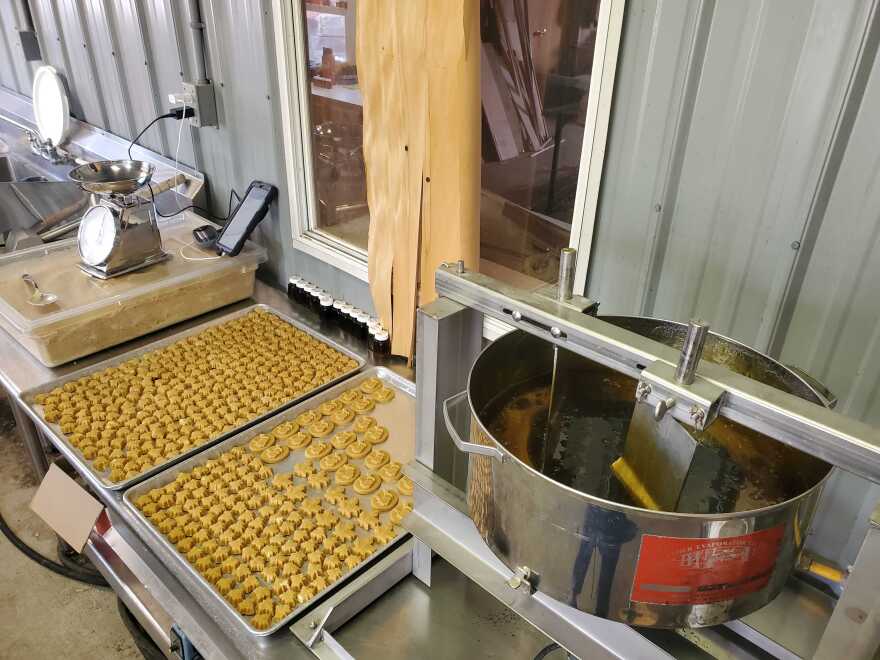Once again, the time has come for our great state to begin its lengthy and tumultuous thawing process. For Michigan’s maple syrup and maple sugar producers, that means the sap is flowing and business is booming.
This year’s season has gotten off to a bit of an odd and rocky start, but Kirk Hedding of H&H Sugarbush Farms in Chelsea said that it’s all part of the process.
“For making Maple syrup and collecting the sap, it is very weather dependent. Mother nature really tells you when you start the season, when you end the season and maybe how much sap you get through the season,” said Hedding.
Whatever the weather, the annual maple sap harvest has been happening for centuries — and it shows no signs of stopping. The practice has distinct Native roots that date back to pre-colonial times, and many Indigenous tribes are still carrying on the tradition today. At Dynamite Hill Farms on the Keweenaw Peninsula, owners Jerry Jondreau and Katy Bresette focus on preserving the Anishinaabe way of sugaring.
“Traditionally, in our communities it was just a lot more accessible to go all the way to sugar, to go to the sugar cakes and the granulated sugar stages. And so one of the things that we've actually worked really hard at is trying to help people see why that's really important. I mean, it's really a lot easier to store. It's a lot easier for people to use,” said Bresette, a member of the Red Cliff Band of Lake Superior Ojibwe.
After the Treaty of 1842 that ceded Anishinaabe land in the Upper Peninsula, Wisconsin and Minnesota to the United States, many of the hardwood forests were decimated. This was devastating for maple sugar and syrup production, and the industry shifted to other regions on the East Coast. Today, Jondreau and Bresette hope to help others rebuild their relationship with the land and carry on centuries-old traditions.
“We lost that opportunity to sugar on the scale that we were doing it in the mid-1800s to the early 1900s,” said Jondreau. “The sugar maple trees were threatened pretty significantly around here, and now they've had enough time to sort of regenerate and we're getting our forests back to a state where we can sort of begin rebuilding that relationship with those trees."
Looking for more conversations from Stateside? Right this way.
If you like what you hear on the pod, consider supporting our work.
Stateside’s theme music is by 14KT.
Additional music by Blue Dot Sessions.









